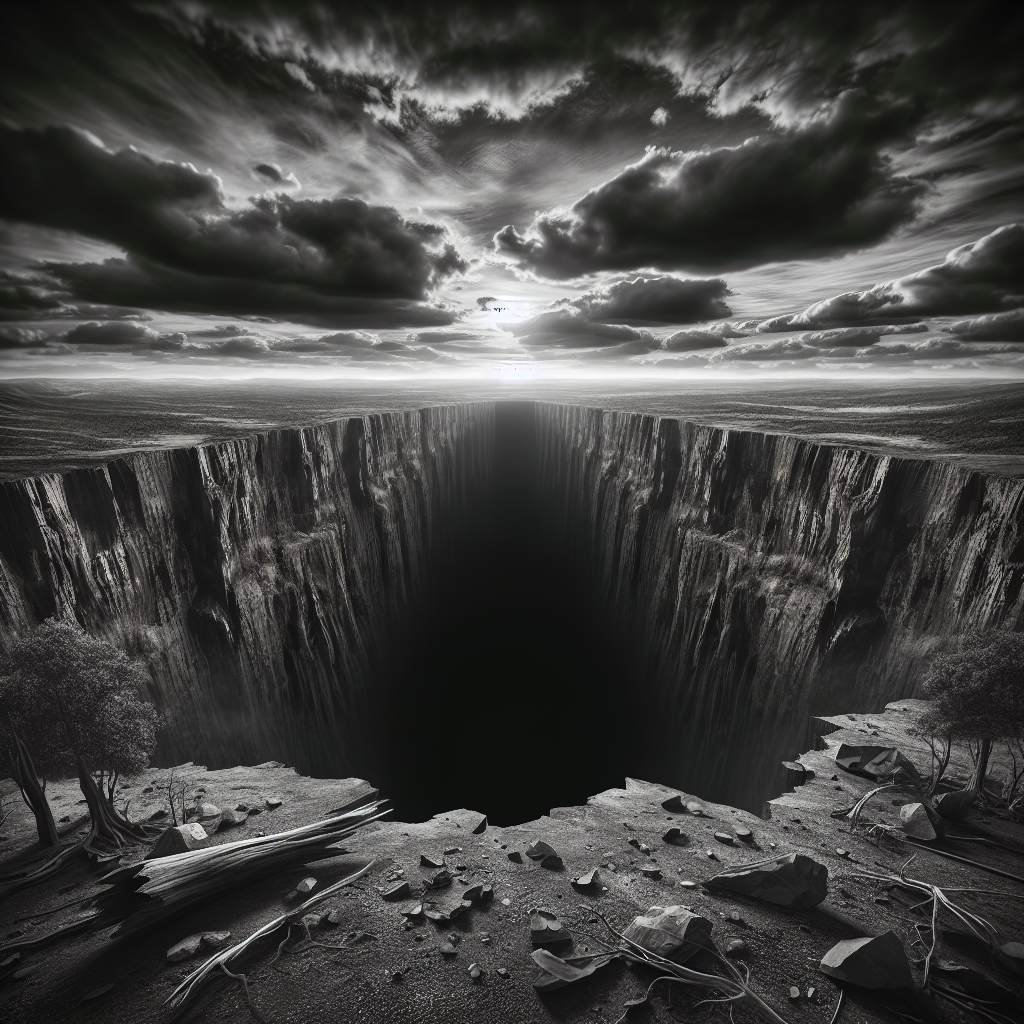Peering Into the Abyss: The Shadow of Global Conflict in the Modern Era
In a world where history often feels like it's repeating itself in a relentless loop, the specter of global conflict looms large over our collective consciousness. The parallel drawn between Japan's invasion of Manchuria in 1931 and Hitler's invasion of Poland in 1939, marking the tumultuous prelude to the Second World War, is a stark reminder of how seemingly isolated events can cascade into a maelstrom of global strife. Today, as we cast our eyes towards Ukraine, ensnared in geopolitical tensions, one can't help but contemplate: are we standing on the precipice of a similar abyss?
The Ticking Clock of History
History, as we've come to understand, is not just a series of isolated incidents but a complex web of interconnected events, decisions, and consequences. The incidents in Japan and Poland, separated by an eight-year chasm, were not merely two points in time but rather a continuum of escalating tensions that culminated in the Second World War. This historical perspective raises a pertinent question regarding the current situation in Ukraine: Is history inching towards a repeat, or will the lessons of the past guide us towards a different path?
The reality is that we live in a world brimming with potential flashpoints, where regional conflicts hold the ominous potential to escalate into global confrontations. The situation in Ukraine is not just a regional issue; it's a litmus test for the international community's ability to navigate the fine line between asserting geopolitical interests and preventing a descent into chaos.
The Nuclear Specter: Pandora's Box Unleashed
The mention of nuclear weapons introduces a chilling dimension to the conversation about global conflict. The analogy of Pandora's Box is apt; once unleashed, the destructive power of nuclear weaponry cannot be contained. This raises the stakes to an unprecedented level. In the face of potential nuclear escalation, the dynamics of global conflict transform; it's no longer about conventional warfare but about preventing existential annihilation.
The notion that losing parties in a conflict might resort to "one more roll of the die" with nuclear weapons is a terrifying prospect. It underscores the critical importance of not just diplomatic engagement but also establishing robust systems of checks and balances to prevent such a catastrophic decision from being made.
A Dance on the Razor's Edge
Amid these high stakes, world leaders and diplomats engage in a delicate dance on the razor's edge, endeavoring to defuse tensions and foster dialogue. The myriad meetings and summits are not just diplomatic formalities; they are vital lifelines to prevent the world from spiraling into a conflict of unimaginable proportions. The challenge lies in balancing national interests with the collective good, a task that requires not only diplomatic acumen but also a profound commitment to peace.
However, the path to peace is fraught with obstacles. Misunderstandings, miscalculations, and unbridled ambitions can easily derail efforts to maintain stability. It's a testament to the complexity of international relations and the importance of constant vigilance and engagement by all stakeholders.
The High Stakes of Low Probability Events
The conversation about global conflict is inherently tied to the concept of risk assessment. The probability of a nuclear conflict might be low, but the consequences are so catastrophic that they cannot be ignored. It's a stark reminder that in the realm of international relations, we must always be prepared for the worst-case scenario, even as we strive for the best.
This perspective requires a paradigm shift in how we approach security and conflict resolution. It's not just about preparing for the likelihood of events but also about mitigating the impact of those with low probability but high consequences. In this context, the adage "hope for the best, prepare for the worst" takes on a new level of significance.
Looking Ahead: Navigating the Maze of Global Conflict
As we stand at this crossroads, the question remains: How do we navigate the complex maze of global conflict without succumbing to the temptations of history's darker impulses? The answer lies in a multifaceted approach that combines diplomatic engagement, robust risk assessment, and an unwavering commitment to peace.
The lessons of history are clear: Isolation and aggression only lead to further conflict and suffering. In contrast, dialogue, cooperation, and a shared commitment to the greater good can pave the way towards a more stable and peaceful world.
In conclusion, while the shadows of global conflict loom large, there remains a beacon of hope in the resilience of the human spirit and the collective will to strive for a better future. It's a journey fraught with challenges, but one that we must undertake with determination and hope.
For readers seeking deeper insight into global conflict and its historical context, The Munich Conference and The Cuban Missile Crisis offer valuable lessons in the complexities of international diplomacy and the importance of preventing escalation.
As we peer into the abyss of potential global conflict, let us not be daunted by the darkness. Instead, let's be guided by the light of collective wisdom and the enduring hope for a peaceful world.
Related News
- Navigating the Perils of Nuclear Deterrence: A Call for Collective Responsibility
- The Ever-Present Threat: Analyzing the Odds of Nuclear Deterrence Failure
- The Strategic Blunders That Reshape Geopolitical Landscapes: From Pearl Harbor to Crimea
- An In-depth Look at the Devastating Impact of Conflict: Insights from World War II
- The Transformative Impact of Nuclear Energy on Warfare
